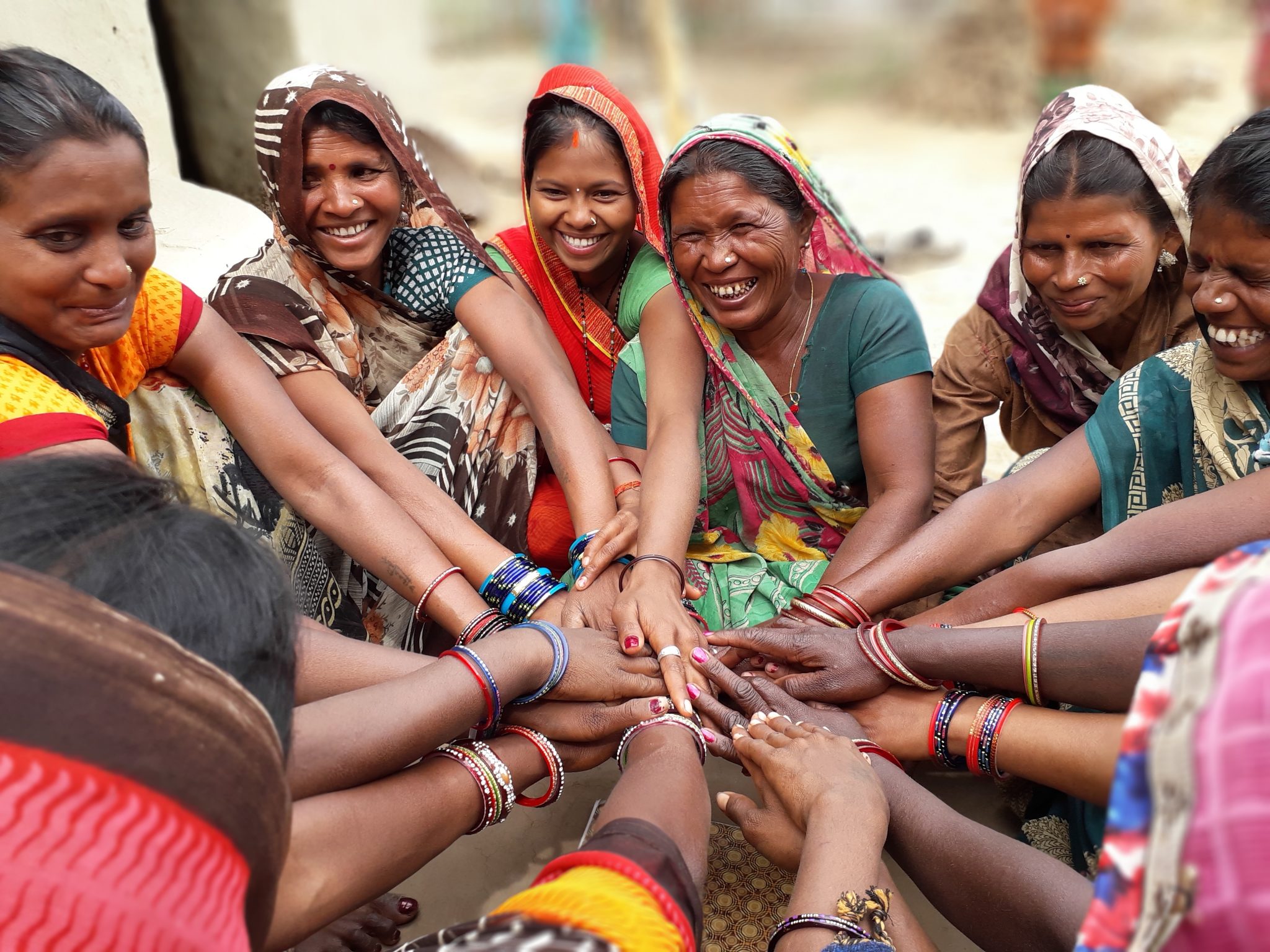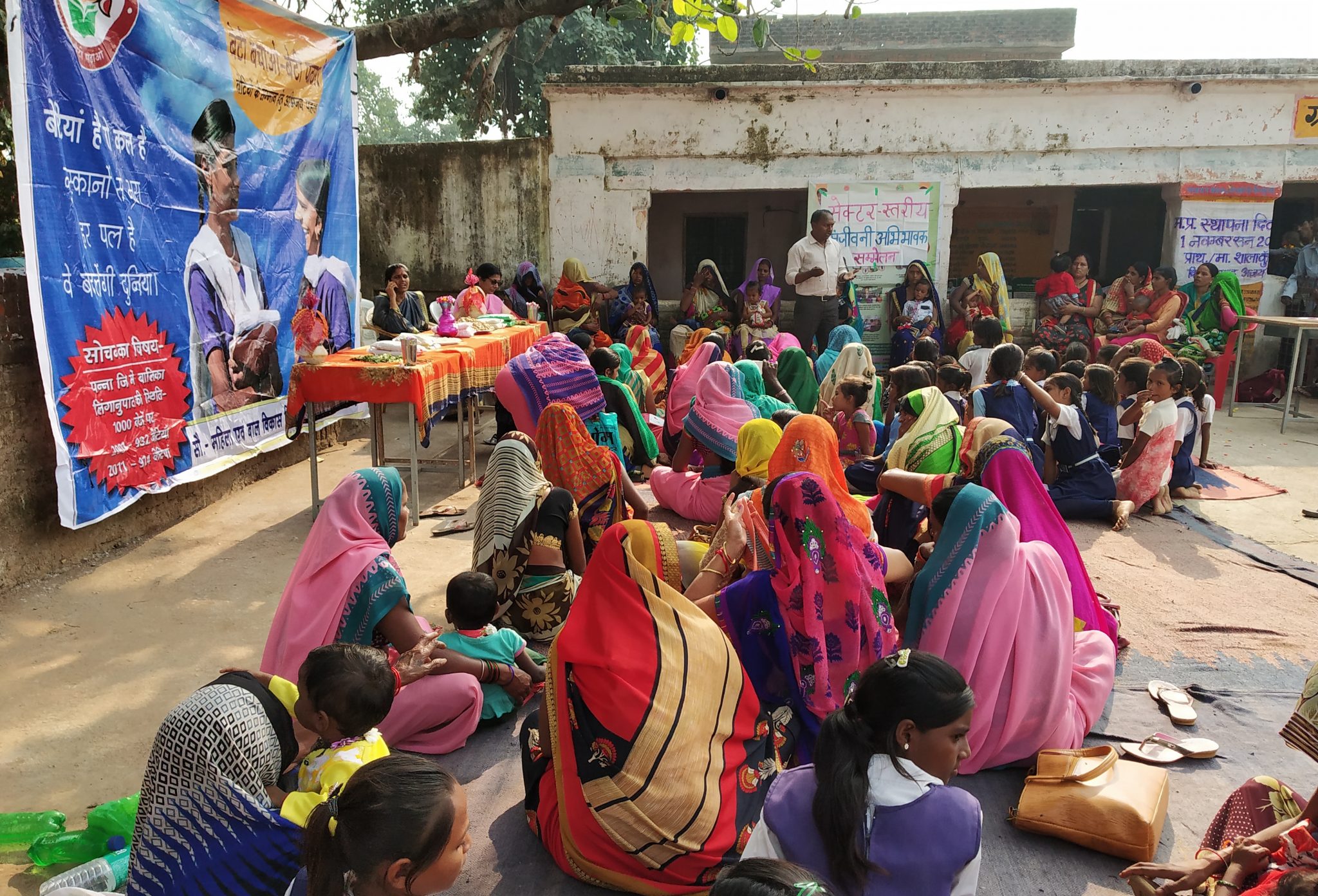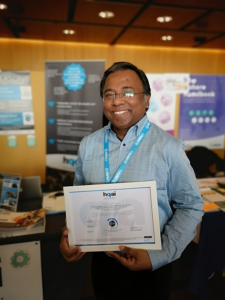EFICOR’s eye-opening certification experience
Indian NGO The Evangelical Fellowship of India Commission on Relief (EFICOR) has now been certified against the Core Humanitarian Standard on Quality and Accountability (CHS). We explore their verification journey, and how HQAI’s subsidy fund made it all possible.

Photo credit: EFICOR.
EFICOR works on development and humanitarian issues to address both the root causes of, and urgent needs caused by, crises. The organisation is currently active in 14 states in India with over 40 projects. EFICOR dedicates its work to people belonging to marginalised and neglected population in society and tribal communities.
On behalf of the organisation, Prem Livingstone Navaneethar and Rev. Kennedy Dhanabalan share their insights on the CHS verification process…
Why did EFICOR decide to embark for certification against the CHS?
It has always been important for EFICOR to be accountable to the people we serve and to continuously improve the way we work. We have always been dedicated to high quality programming, exploring and applying different sets of standards. We are proud members of the CHS Alliance – and the Humanitarian Accountability Partnership (HAP) International before it.
“To start the certification process against the CHS was a leap into the unknown, but now we are very grateful that we were bold enough to start this journey.”
However, for national or local organisations such as EFICOR, the cost of certification was a barrier. That’s why HQAI’s subsidy fund made all the difference.

Mr. Devendar Singh Kondh, Richkudi MP in his tomato field. Photo credit: EFICOR.
EFICOR has just been certified, congratulations! How did you experience the certification journey?
Certification was an eye-opening experience for EFICOR. The way the independent auditors looked at the CHS is different to how we thought about it during our initial self-assessment Although our self-assessment revealed areas we needed to improve, HQAI auditors applied a rigorous process that went even further.
The initial HQAI report on our strengths and weaknesses gave a good overview of where we stood as an organisation. The report included one major corrective action request that EFICOR had to solve within six months as a precondition to receive certification. This really pushed us to create an effective plan to work on our weaknesses.
Overall, we learned a lot as an organisation throughout the audit process, from the HQ to the field offices.

Counseling parents of Malnourished Children at kunwarpur Roshini. Photo credit: EFICOR.
Can you describe some of the major learnings for EFICOR?
One major learning was creating processes for documentation and collection of evidence. Before the audit our learning was only based on staff impressions and feedback. Now we know how to document, collect and structure evidence to demonstrate improvement.

Photo credit: HQAI
We also learned a lot on developing complaint and feedback mechanisms with the communities EFICOR works with. We changed our policies around complaints and feedback and created the mechanisms together with community committees. The communities we serve have been informed about these changes. They now know what behaviour they can expect from our staff and what EFICOR activities to expect. Also, EFICOR developed – with its staff – clear do’s and don’ts that are visible in all offices and well known by staff. We were changed by CHS certification. In the thousands of remote villages where we work, people now know how to complain.
A third area of learning was to put a rigorous process in place for all the different project phases. An example of this is we practice the Do No Harm principle by continuously assessing risks and mitigating the potential negative effects of EFICOR’s work..
What’s next?
We have invested a lot of time and effort to improve the areas that were flagged after HQAI’s initial audit, but we know that it is an ongoing process.
“We have learned how to formalise our processes and apply them systematically. Now the communities we serve play a central role, not only in our activities, but also in our policies and processes.”
Certification against the CHS has received much positive attention from our Board and donors. We wholly recommend other national and local organisations embark on their own CHS verification journeys. The subsidy fund can make it financially accessible for you too.
Learn more about CHS verification.
